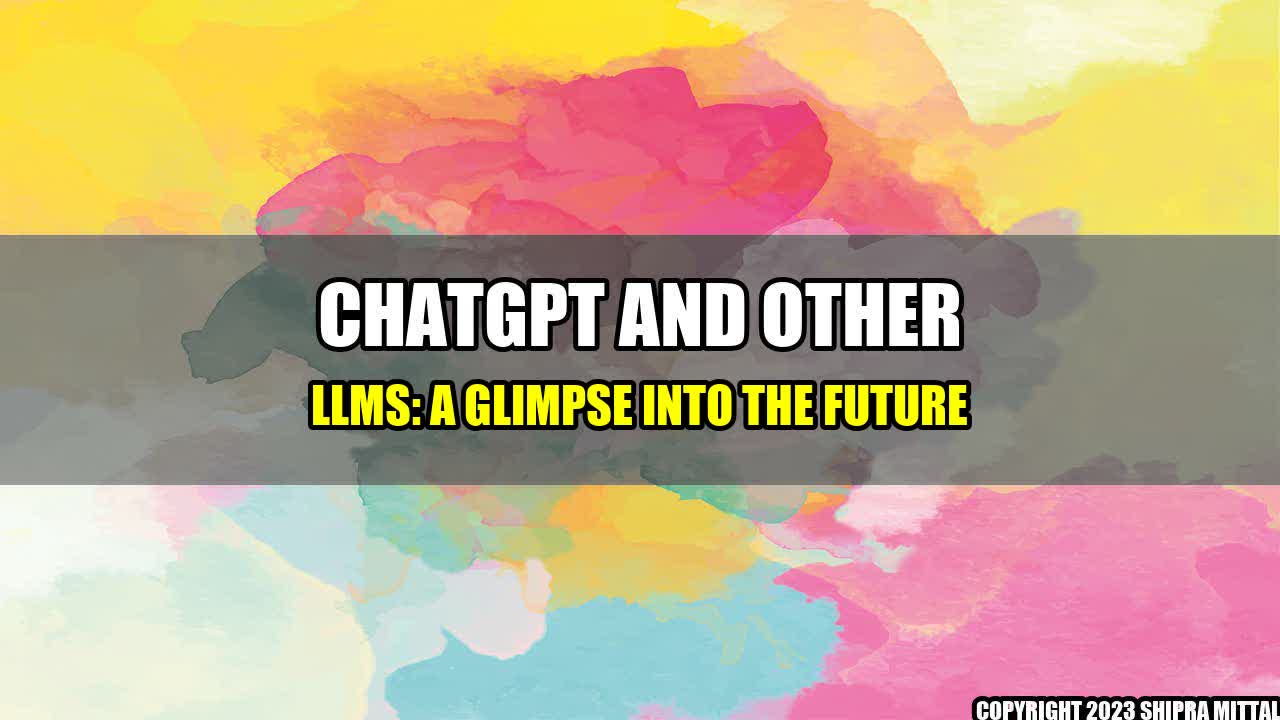Imagine this: you're a student struggling to learn a new language. You've spent countless hours studying grammar rules, memorizing vocabulary, and practicing pronunciation, but you still feel like you're not making any progress.
Then one day, a friend tells you about ChatGPT, a new language learning machine that uses artificial intelligence to understand and respond to your conversation in real time. You're skeptical at first, but you decide to give it a try.
To your amazement, ChatGPT not only understands everything you say, but also provides feedback on your grammar, vocabulary, and pronunciation. It even incorporates cultural references and idiomatic expressions into the conversation, making it feel like you're actually talking to a native speaker.
Thanks to ChatGPT, you finally feel like you're making progress in your language learning journey. And you're not alone: millions of students around the world are using ChatGPT and other language learning machines (LLMs) to improve their skills and achieve their goals.
Real Life Examples
ChatGPT is just one example of the many LLMs that are changing the face of education. Another notable example is OpenAI's GPT-3, which has been used to generate everything from poetry to programming code.
Then there's Coursera, a leading online learning platform that has partnered with universities and organizations around the world to offer thousands of courses on a wide range of topics. Coursera uses machine learning algorithms to personalize the learning experience for each student, tailoring the content and assessments to their individual strengths and weaknesses.
But LLMs are not just for language learning or online courses. They are being used in industries such as healthcare and finance to improve communication between professionals and customers. For example, Babylon Health has developed a chatbot that uses natural language processing to diagnose illnesses and provide medical advice to patients.
Critical Comments
- While LLMs are undoubtedly impressive, they are not without their limitations. For example, they still struggle with understanding context and sarcasm, and may not be able to recognize regional accents or dialects. This could lead to misunderstandings or errors in communication.
- LLMs also raise concerns about privacy and data security, as they require access to personal information and conversation data in order to function. Companies that develop LLMs must be transparent about how they collect, use, and protect this data.
- Finally, LLMs could potentially lead to a reduction in human interaction and empathy, as students and professionals become increasingly reliant on machines to communicate. It is important to strike a balance between the convenience and efficiency of LLMs and the importance of genuine human connection.

Akash Mittal Tech Article
Share on Twitter Share on LinkedIn